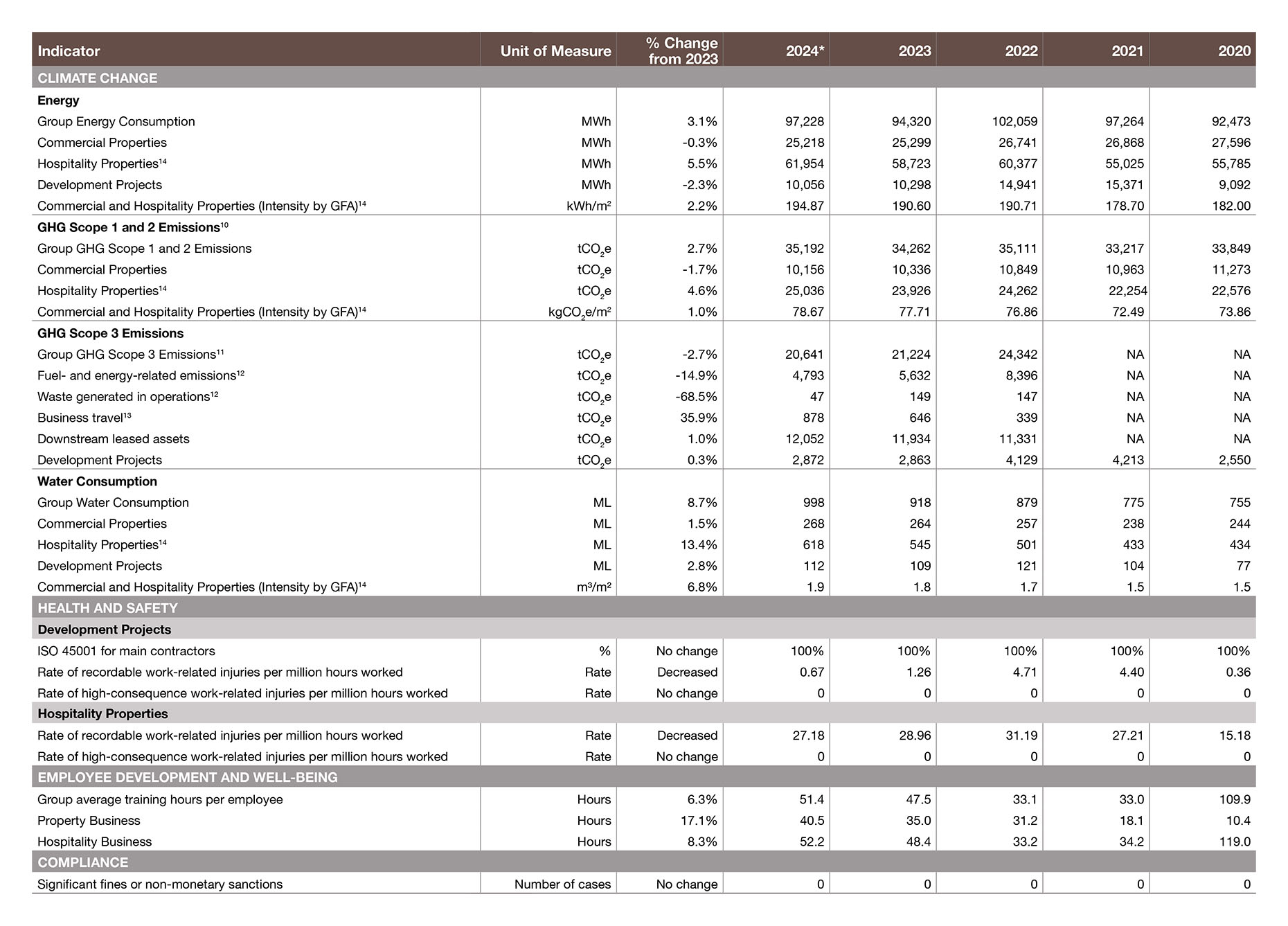Five-Year Sustainability Performance
2020 – 2024
Learn more about UOL’s long-term commitment to sustainable operations and our consistent efforts to enhance ESG performance.

- Scope 1 emissions for 2020, 2021, 2022 and 2023 have been restated to reflect a more accurate calculation methodology for piped gas, resulting in an increase in emissions by 0.1%, 5.0%, 80.0% and 80.2% respectively.
- To align with the GHG Protocol, GHG emissions from development projects have been reclassified under Scope 3 (previously disclosed under Scope 1 and 2). UOL began developing the other Scope 3 GHG emissions categories in 2022. Additionally, only the data for Scope 3 development projects are audited; the scope of assurance excludes the other Scope 3 emissions categories.
- The decrease in Scope 3 fuel- and energy-related emissions and Scope 3 waste generated in operations was due to the reduction in updated emission factors from various sources, including EMA, DEFRA and IPCC AR6.
- The increase in Scope 3 business travel data in 2024 was due to an increase in overseas travel activities from driving business growth.
- The increase in absolute energy consumption, GHG Scope 1 and 2 emissions, and water consumption in hospitality properties – as well as the increase in their respective intensities by GFA, in 2024 was largely driven by higher occupancy rates resulting from the post-pandemic recovery. Additionally, Pan Pacific Orchard was fully operational throughout 2024, following its opening in June 2023.
*Selected indicators, including Energy, GHG Scope 1 and 2 Emissions, GHG Scope 3 Emissions from Development Projects, Water Consumption, Health and Safety, and Group average training hours per employee, have been assured by PwC. Please refer to pages 75 to 78 of the report for the Independent Limited Assurance Report.